Hans Jörg Mammel, Arthur Schoonderwoerd - Franz Schubert: Winterreise (2006)
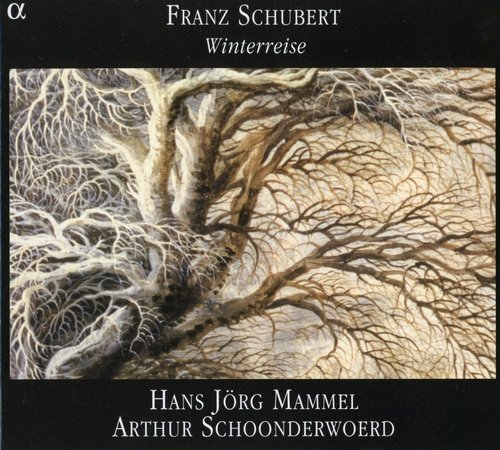
Artist: Hans Jörg Mammel, Arthur Schoonderwoerd
Title: Franz Schubert: Winterreise
Year Of Release: 2006
Label: Alpha
Genre: Classical, Vocal
Quality: FLAC (image+.cue,log,scans)
Total Time: 68:44
Total Size: 330 Mb
WebSite: Album Preview
Tracklist: Title: Franz Schubert: Winterreise
Year Of Release: 2006
Label: Alpha
Genre: Classical, Vocal
Quality: FLAC (image+.cue,log,scans)
Total Time: 68:44
Total Size: 330 Mb
WebSite: Album Preview
Franz Schubert (1797-1828)
Winterreise D.911 op. 89
Nach Gedichten von / to poems by / sur des poèmes de Wilhelm Müller (1794-1827)
01. Gute Nacht [0:05:35.21]
02. Die Wetterfahne [0:01:33.28]
03. Gefrorne Tränen [0:02:17.35]
04. Erstarrung [0:02:36.51]
05. Der Lindenbaum [0:04:34.45]
06. Wasserflut [0:04:25.32]
07. Auf dem Flusse [0:03:10.71]
08. Rückblick [0:02:10.58]
09. Irrlicht [0:02:41.34]
10. Rast [0:03:21.03]
11. Frühlingstraum [0:03:35.19]
12. Einsamkeit [0:02:44.13]
13. Die Post [0:02:23.30]
14. Der greise Kopf [0:02:36.29]
15. Die Krähe [0:01:42.41]
16. Letzte Hoffnung [0:02:01.65]
17. Im Dorfe [0:03:20.14]
18. Der stürmische Morgen [0:00:52.01]
19. Täuschung [0:01:18.63]
20. Der Wegweiser [0:04:00.06]
21. Das Wirtshaus [0:04:13.12]
22. Mut [0:01:23.37]
23. Die Nebensonnen [0:02:48.62]
24. Der Leiermann [0:03:14.69]
Performers:
Hans Jörg Mammel, tenor
Arthur Schoonderwoerd, pianoforte Johann Fritz (ca 1810)
This is surely a Winterreise too far. The finest interpreters – including, among tenors, Peter Schreier, Ian Bostridge and Christoph Prégardien – make the wanderer’s inner and outer journey through the snowbound landscape a cathartic experience. Hans Jörg Mammel, whose career has been largely in early music, musters a generalised sensitivity but never grips or haunts the imagination. His light, monochrome voice grows raw and “yowly” under pressure; and his expression ranges from the mildly plaintive to the mildly indignant. Tempi – usually on the mobile side – are well judged, rhythms distinctly “straight”, sometimes to the point of rigidity. At best you could say Mammel gives a performance of touching innocence. But in this cycle of complex, disturbing experience, that is not enough.
Incongruously, Arthur Schoonderwoerd sometimes batters his early 19th-century Fritz fortepiano mercilessly – the crashing sforzando accents in “Gute Nacht” and “Der Lindenbaum” had me diving for cover. In fairness, his playing can be effective elsewhere – say, in Schubert’s evocation of rattling chains in “Im Dorfe” (the fortepiano’s dry percussive bass an advantage here); or in the final “Der Leiermann”, where the mute pedal conjures a remote, unearthly sonority impossible to achieve on a modern Steinway. Neither he nor Mammel, though, are done any favours by an absurdly cavernous acoustic that suggests a communal washroom.
If you want the combination of tenor and period fortepiano in Winterreise, look no further than the beautifully matched partnership of Christoph Prégardien and Andreas Staier (Teldec, 12/97): an intensely “lived” performance, less neurotically tormented than, say, Schreier and Fischer-Dieskau, but no less moving, with the bleak inwardness of the final songs culminating in a confiding, almost compassionate address to the organ grinder.
Incongruously, Arthur Schoonderwoerd sometimes batters his early 19th-century Fritz fortepiano mercilessly – the crashing sforzando accents in “Gute Nacht” and “Der Lindenbaum” had me diving for cover. In fairness, his playing can be effective elsewhere – say, in Schubert’s evocation of rattling chains in “Im Dorfe” (the fortepiano’s dry percussive bass an advantage here); or in the final “Der Leiermann”, where the mute pedal conjures a remote, unearthly sonority impossible to achieve on a modern Steinway. Neither he nor Mammel, though, are done any favours by an absurdly cavernous acoustic that suggests a communal washroom.
If you want the combination of tenor and period fortepiano in Winterreise, look no further than the beautifully matched partnership of Christoph Prégardien and Andreas Staier (Teldec, 12/97): an intensely “lived” performance, less neurotically tormented than, say, Schreier and Fischer-Dieskau, but no less moving, with the bleak inwardness of the final songs culminating in a confiding, almost compassionate address to the organ grinder.
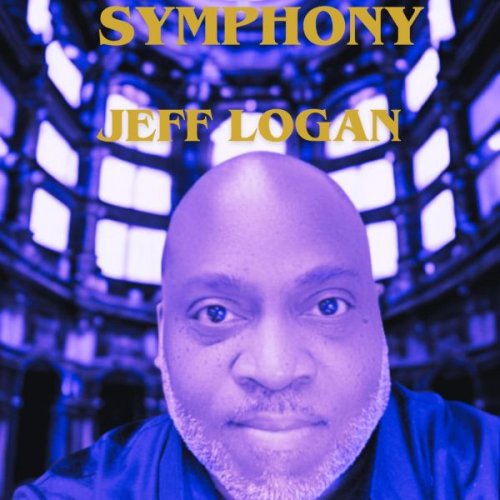
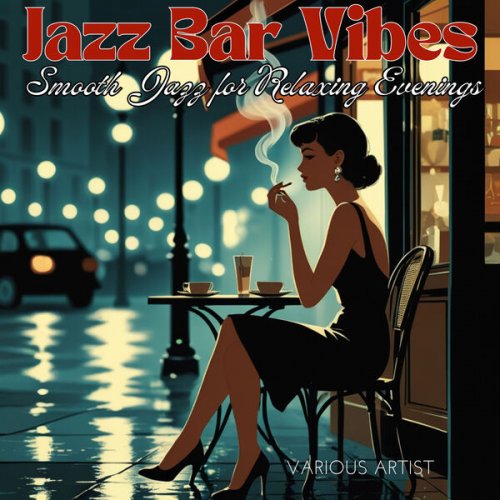
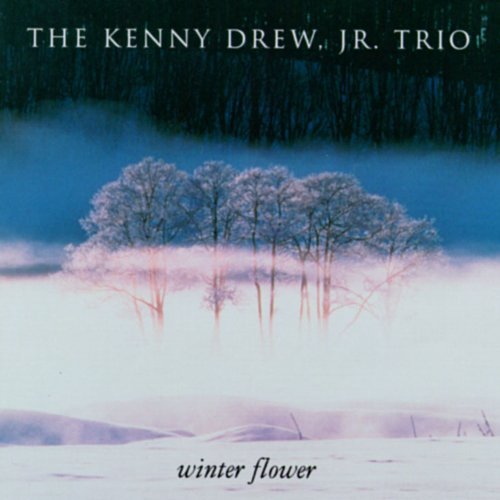
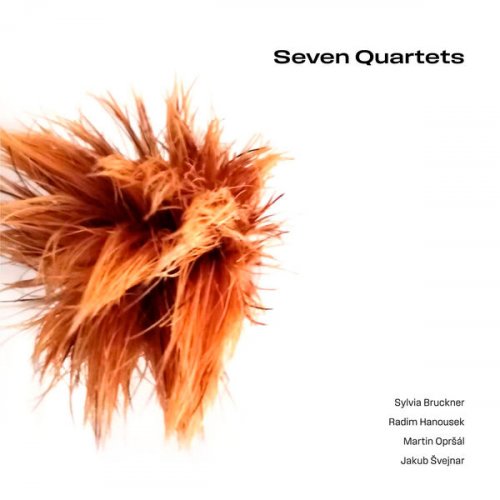
![Shake Stew - TEN ONE TWO (2026) [Hi-Res] Shake Stew - TEN ONE TWO (2026) [Hi-Res]](https://www.dibpic.com/uploads/posts/2026-02/1770829622_wjfgdtvb962qa_600.jpg)
![Alex Alicke - The recovered files (2026) [Hi-Res] Alex Alicke - The recovered files (2026) [Hi-Res]](https://www.dibpic.com/uploads/posts/2026-02/1771222991_cover.jpg)
![Gregory Lewis & Ms. Raina - Organ Monk Sings (Introducing Ms. Raina) (2026) [Hi-Res] Gregory Lewis & Ms. Raina - Organ Monk Sings (Introducing Ms. Raina) (2026) [Hi-Res]](https://www.dibpic.com/uploads/posts/2026-02/1770839809_owtxytnszg5nv_600.jpg)
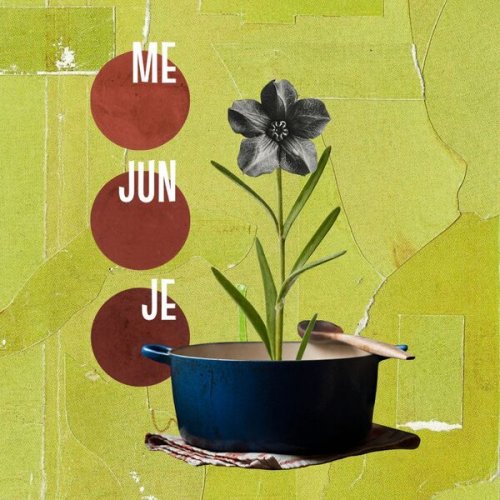
![Kurt Elling & WDR Big Band - In The Brass Palace (2026) [Hi-Res] Kurt Elling & WDR Big Band - In The Brass Palace (2026) [Hi-Res]](https://www.dibpic.com/uploads/posts/2026-02/1770798163_ap5aqf18jvswb_600.jpg)